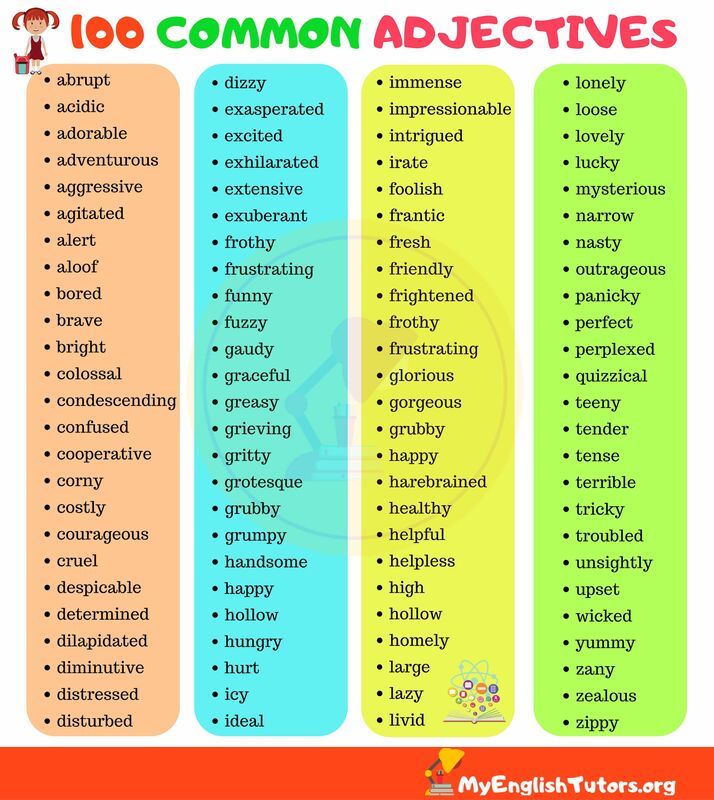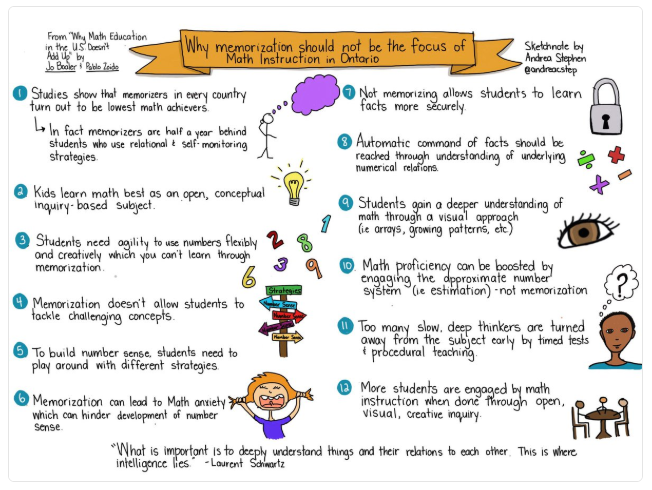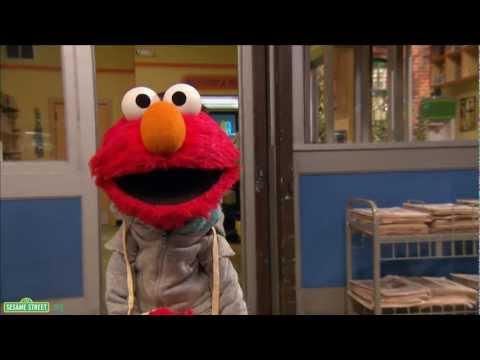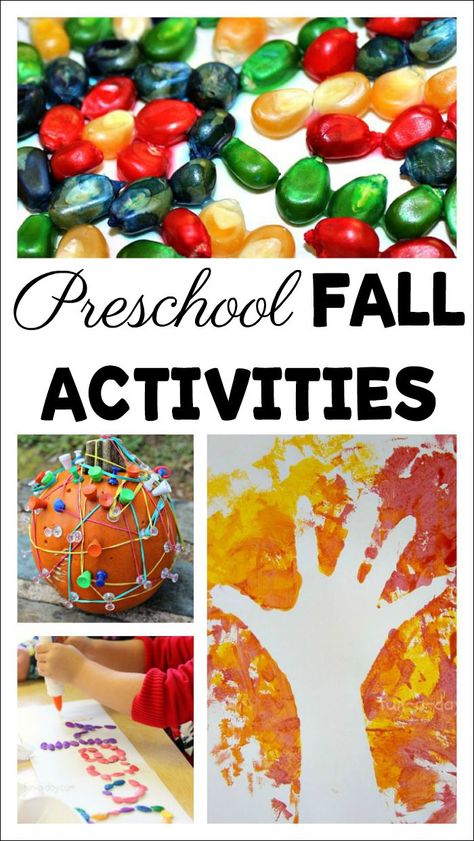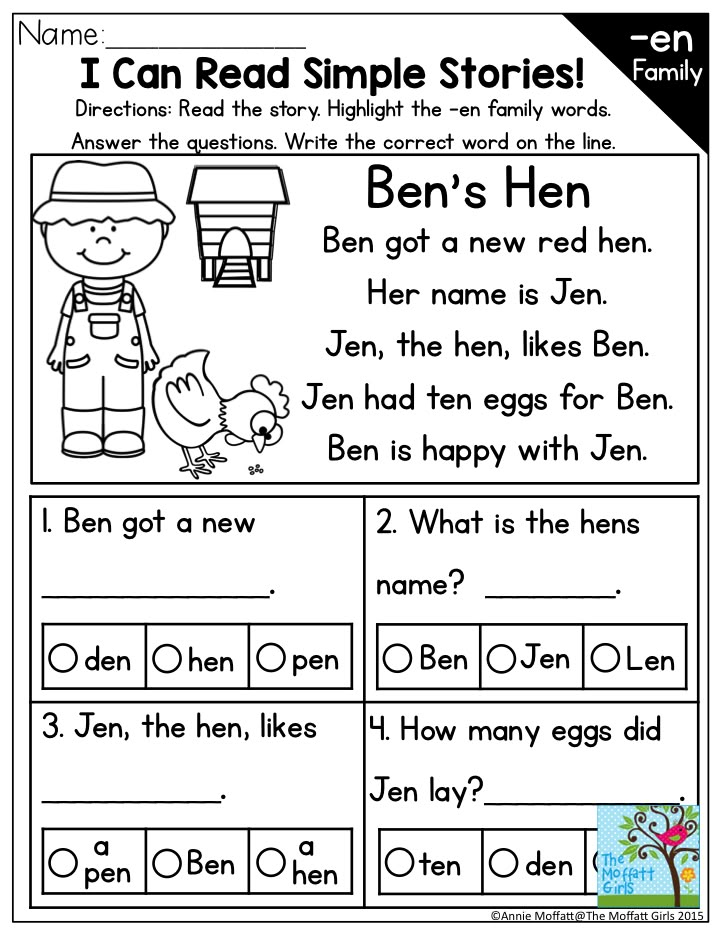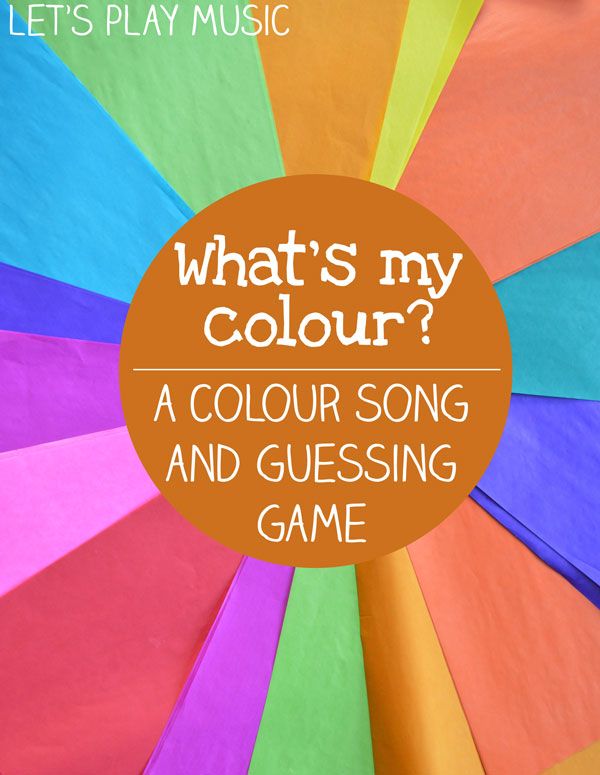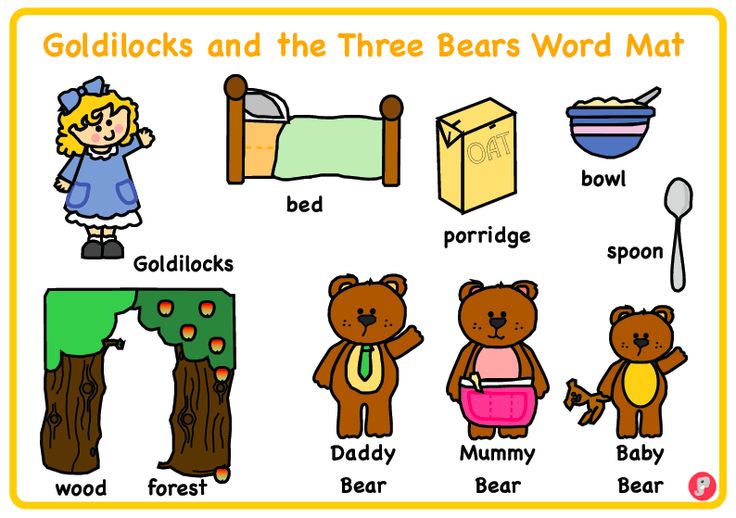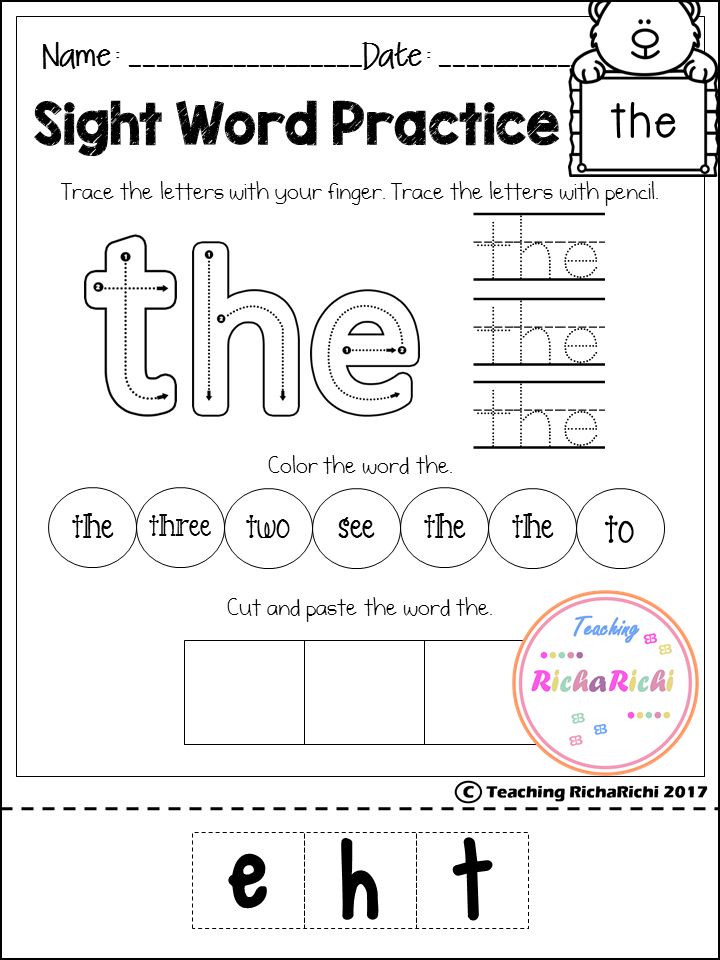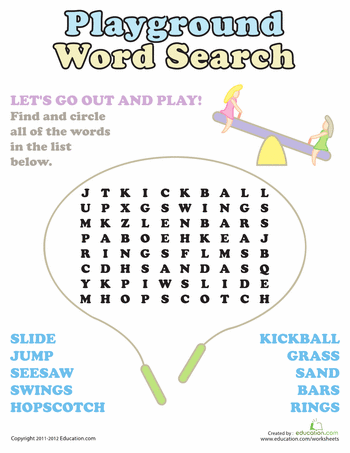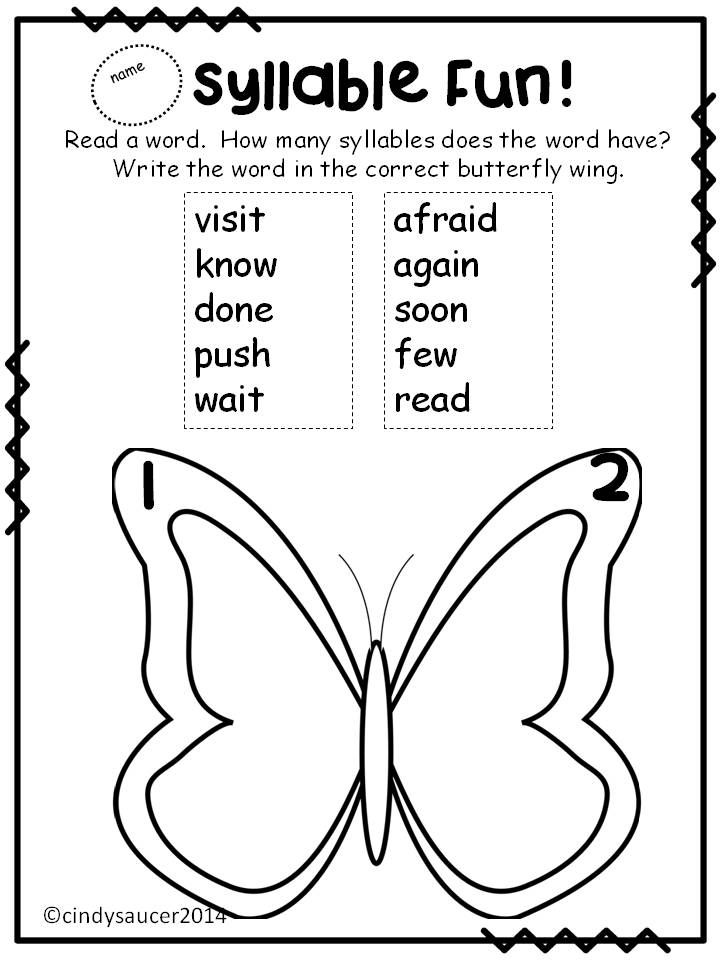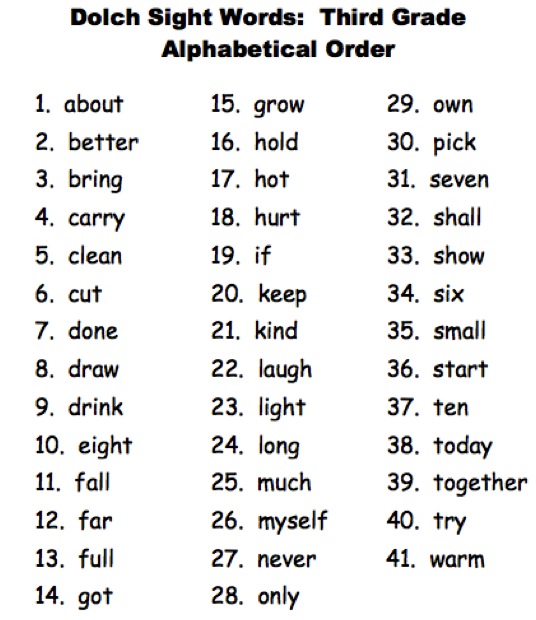What are common adjectives
Common Adjectives
Common Adjectives
Common Adjectives Definition
A common adjective is a grammatical part of speech that describes a noun (a person, place, thing, or idea). Adjectives typically answer the questions: “Which one?” “What kind?” “How many?” “How much?”
Examples of Common Adjectives
In English grammar, some examples of common adjectives would be the following:
The funny teacher kept the class engaged.
(“funny” is an adjective describing the noun “teacher”)
Please hand me the tattered book.
(“tattered” is an adjective describing the noun “book”)
She rode the rusty bike down the block.
(“rusty” is an adjective describing the noun “bike”)
Want to try GrammarFlip for yourself?
Get 30 days free
No payment required.
Explore More Lessons & Curriculum:
Parts of Speech lessons provide the building blocks of grammar. GrammarFlip covers these topics in detail to ensure a solid foundation is built. First time learners and students seeking to review the parts of speech can both benefit from the instructional videos and slide show reviews.
Common Nouns
Proper Nouns
Coordinating Conjunctions
Correlative Conjunctions
Action Verbs
Linking Verbs
Verb Phrases
Verb Phrases with Interrupters
Personal Pronouns & Antecedents
Common Adjectives
Proper Adjectives
Nouns Functioning as Adjectives
Demonstrative Adjectives
Demonstrative Pronouns
Possessive Adjectives
Possessive Pronouns
Adverbs Modifying Verbs
Adverbs Modifying Adjectives
Adverbs Modifying Other Adverbs
Prepositions
Transitive Verbs
Intransitive Verbs
Relative Pronouns
Relative Adverbs
Nominative Case Pronouns
Objective Case Pronouns
Possessive Case Pronouns
Reflexive Pronouns
Intensive Pronouns
Interrogative Pronouns
Interrogative Adjectives
Indefinite Pronouns
Indefinite Adjectives
Interjections
Subordinating Conjunctions
Conjunctive Adverbs
Parts of the Sentence lessons are critical for understanding how the parts of speech function in language construction.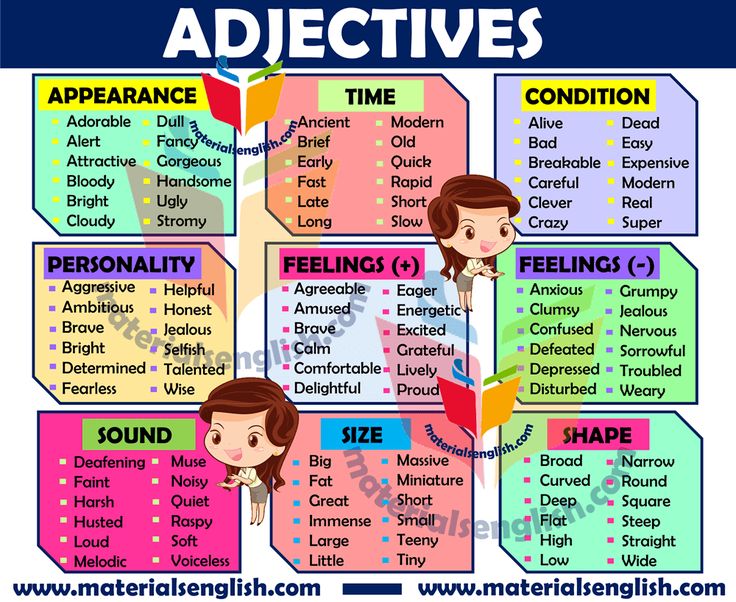 From the basic to the advanced, these lessons will cover a wide range of grammar topics that can be used in any grade level or classroom.
From the basic to the advanced, these lessons will cover a wide range of grammar topics that can be used in any grade level or classroom.
Simple and Complete Subjects
Simple and Complete Predicates
Compound Subjects
Compound Predicates
The Understood You
Compound Subjects Using “Or”
Hard-to-Find Subjects in Questions
Hard-to-Find Subjects (Here/There)
Objects of Prepositions
Prepositional Phrases
Prepositional Phrases as Adjectives
Prepositional Phrases as Adverbs
Direct Objects
Indirect Objects
Objective Complements
Subject Complements
Phrases Defined
Appositive Phrases
Clauses Defined
Independent Clauses
Dependent/Subordinate Clauses
Simple Sentences
Compound Sentences
Complex Sentences
Compound-Complex Sentences
Adjective Clauses
Adverb Clauses
Noun Clauses
Participles and Participial Phrases
Gerunds and Gerund Phrases
Infinitives and Infinitive Phrases
Mechanics and Usage lessons equip students with the necessary skills to communicate clearly to all audiences.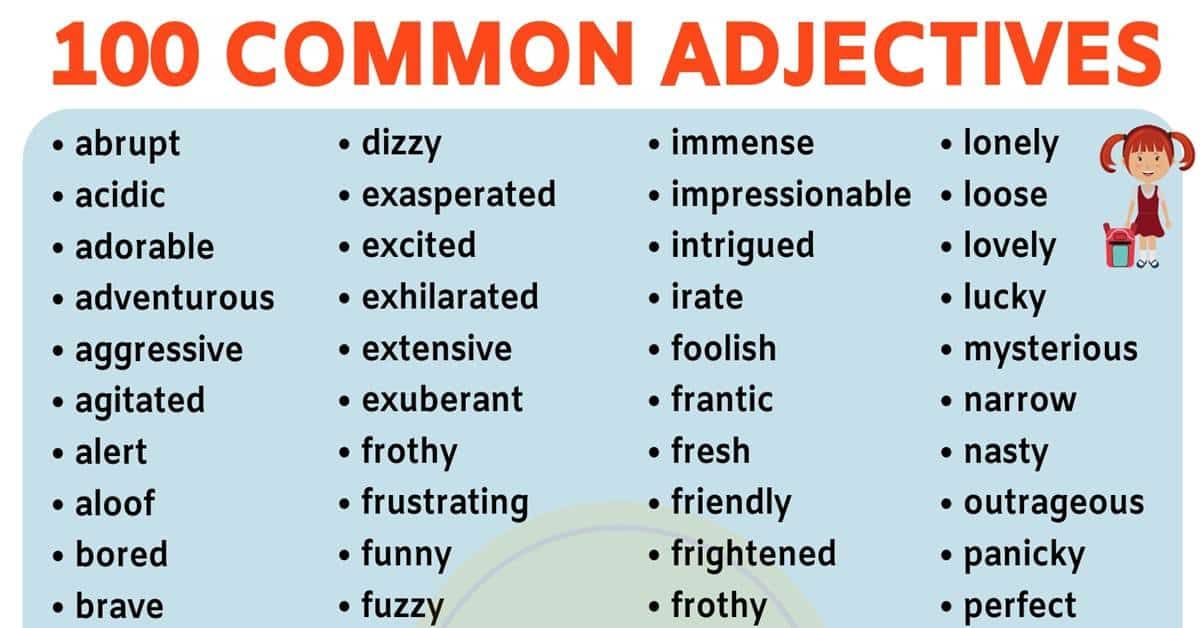 With a focus on the application of these concepts in student writing, these lessons tie together both simple constructions of grammar as well as the more complex such that any age or skill level of student will benefit.
With a focus on the application of these concepts in student writing, these lessons tie together both simple constructions of grammar as well as the more complex such that any age or skill level of student will benefit.
Capitalization: Basic Rules
Capitalization: Advanced Rules
Commas: Items in a Series
Active Voice vs. Passive Voice
Hyphens
Commas: Between Two Adjectives
Common Homophones
Commonly Confused Pairs
Apostrophes: Basic Rules
Apostrophes: Individual vs. Joint Ownership
Quotation Marks in Dialogue
Quotation Marks vs. Italics
Misplaced Modifiers (Phrases)
Subject/Verb Agreement
Dashes
Parentheses
Who vs. Whom
Semicolons w/ Independent Clauses
Commas w/ Introductory Clauses
Parts of Speech vs. Parts of the Sentence
Run-on Sentences
Comma Splices
Sentence Fragments
Parallel Construction
Colons
Elliptical Clauses
Misplaced Modifiers (Clauses)
Dangling Participles
Possessive Use with Gerunds
Commas: Essential & Non-Essential Elements
List of 228 Common Adjectives
DESCRIPTION
Person Skydiving With List of Common Adjectives
SOURCE
Skydiving: BSVIT / iStock / Getty Images Plus / Background: Tolchik / iStock / Getty Images Plus
PERMISSION
Used under Getty Images license
Adjectives modify perhaps the most common words in the English language, nouns.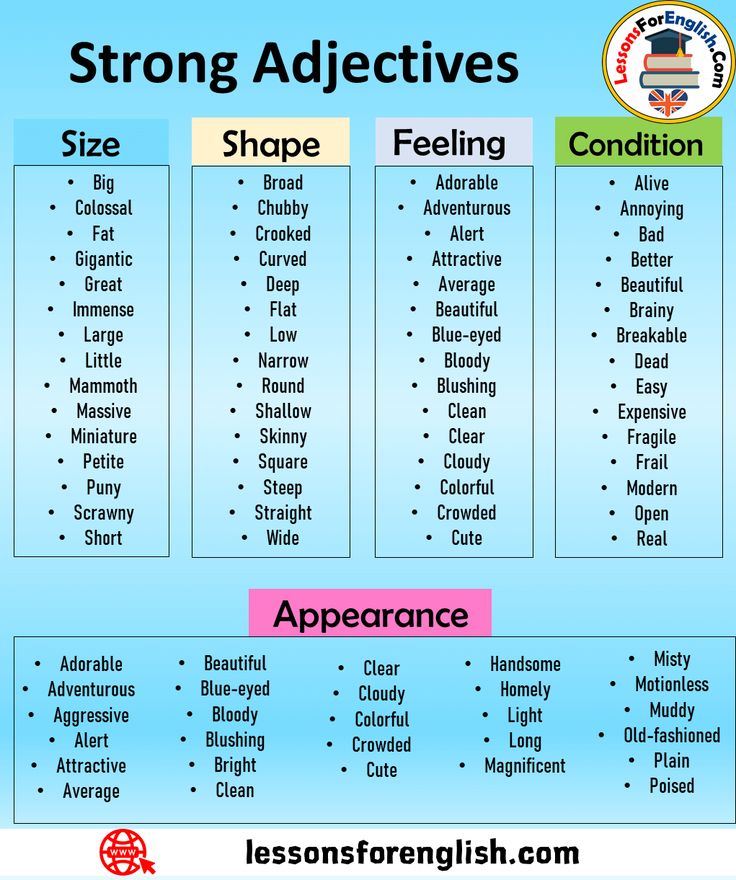 With a list of common adjectives at hand, you can effectively describe your surroundings in detail. The words on this list of 228 adjectives can all be used to describe feelings or the appearance of objects and can also make it easy to describe yourself, your surroundings and your favorite things.
With a list of common adjectives at hand, you can effectively describe your surroundings in detail. The words on this list of 228 adjectives can all be used to describe feelings or the appearance of objects and can also make it easy to describe yourself, your surroundings and your favorite things.
A-D List of Adjective Words
The first part of this list features commonly used adjectives from the first four letters of the alphabet.
| adorable | adventurous | aggressive |
| agreeable | alert | alive |
| amused | angry | annoyed |
| annoying | anxious | arrogant |
| ashamed | attractive | average |
| awful | bad | beautiful |
| better | bewildered | black |
| bloody | blue | blue-eyed |
| blushing | bored | brainy |
| brave | breakable | bright |
| busy | calm | careful |
| cautious | charming | cheerful |
| clean | clear | clever |
| cloudy | clumsy | colorful |
| combative | comfortable | concerned |
| condemned | confused | cooperative |
| courageous | crazy | creepy |
| crowded | cruel | curious |
| cute | dangerous | dark |
| dead | defeated | defiant |
| delightful | depressed | determined |
| different | difficult | disgusted |
| distinct | disturbed | dizzy |
| doubtful | drab | dull |
Advertisement
E-K Adjectives List
Advertisement
There are plenty more often-used adjectives that start with letters in the next part of the alphabet.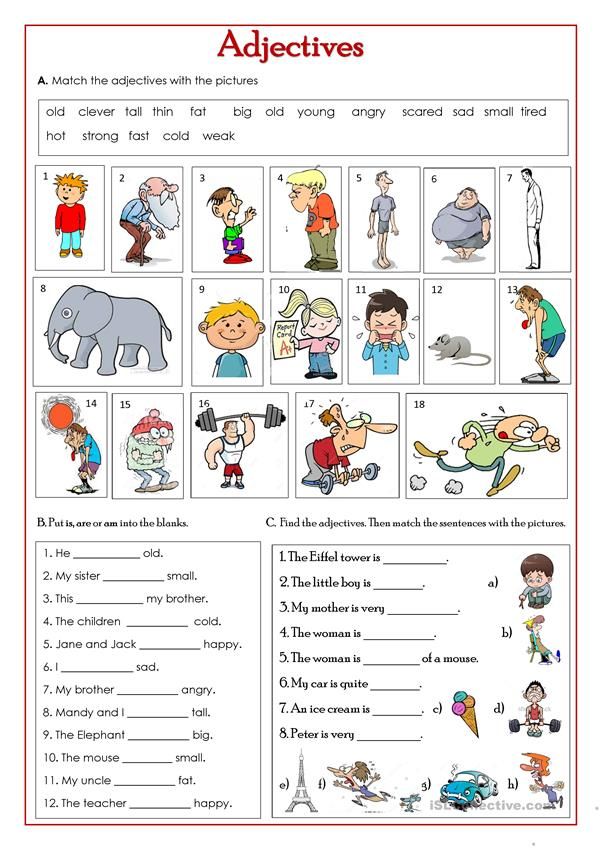 Review these adjective words that begin with the letters “e” through “k.”
Review these adjective words that begin with the letters “e” through “k.”
| eager | easy | elated |
| elegant | embarrassed | enchanting |
| encouraging | energetic | enthusiastic |
| envious | evil | excited |
| expensive | exuberant | fair |
| faithful | famous | fancy |
| fantastic | fierce | filthy |
| fine | foolish | fragile |
| frail | frantic | friendly |
| frightened | funny | gentle |
| gifted | glamorous | gleaming |
| glorious | good | gorgeous |
| graceful | grieving | grotesque |
| grumpy | handsome | happy |
| healthy | helpful | helpless |
| hilarious | homeless | homely |
| horrible | hungry | hurt |
| ill | important | impossible |
| inexpensive | innocent | inquisitive |
| itchy | jealous | jittery |
| jolly | joyous | kind |
L-S Adjective Words
Moving forward in alphabetical order, there are still many more adjectives appropriate for use in everyday conversation.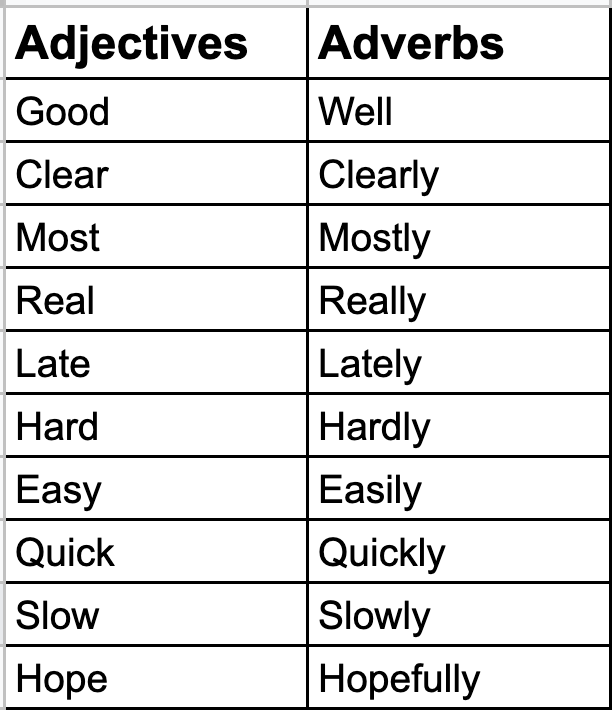 Explore these common words that start with the letters between “l” and “s.”
Explore these common words that start with the letters between “l” and “s.”
| lazy | light | lively |
| lonely | long | lovely |
| lucky | magnificent | misty |
| modern | motionless | muddy |
| mushy | mysterious | nasty |
| naughty | nervous | nice |
| nutty | obedient | obnoxious |
| odd | old-fashioned | open |
| outrageous | outstanding | panicky |
| perfect | plain | pleasant |
| poised | poor | powerful |
| precious | prickly | proud |
| putrid | puzzled | quaint |
| real | relieved | repulsive |
| rich | scary | selfish |
| shiny | shy | silly |
| sleepy | smiling | smoggy |
| sore | sparkling | splendid |
| spotless | stormy | strange |
| stupid | successful | super |
Advertisement
T-Z List of Adjectives
There are plenty more common adjectives throughout the remainder of the alphabet.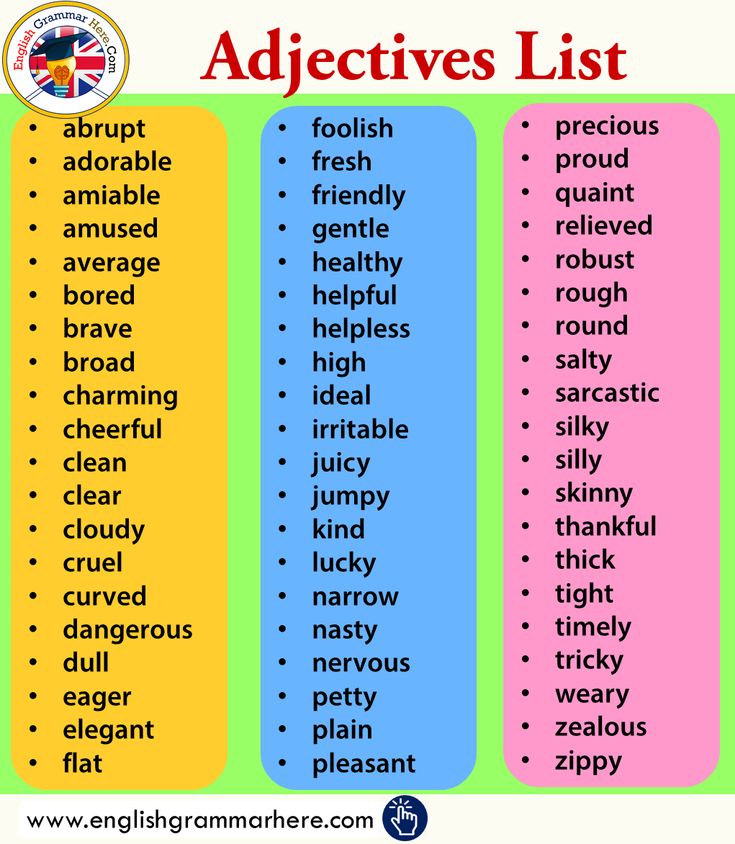 Explore these common words that start with the letters between “t” and “z.”
Explore these common words that start with the letters between “t” and “z.”
| talented | tame | tasty |
| tender | tense | terrible |
| thankful | thoughtful | thoughtless |
| tired | tough | troubled |
| ugliest | ugly | uninterested |
| unsightly | unusual | upset |
| uptight | vast | victorious |
| vivacious | wandering | weary |
| wicked | wide-eyed | wild |
| witty | worried | worrisome |
| wrong | zany | zealous |
Printable Adjectives List
Keeping up with all of these words doesn’t have to be challenging.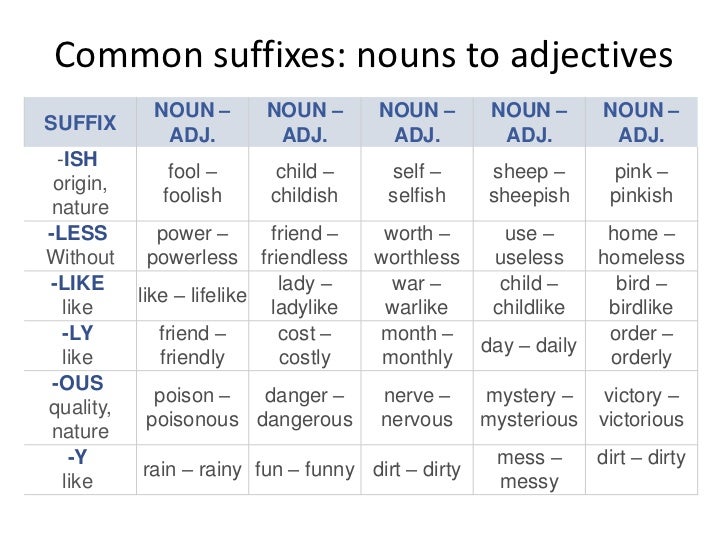 Just download the printable version of this list by clicking the image below, then print or save for future reference. You’ll be excited to see that the printable version has even more adjectives!
Just download the printable version of this list by clicking the image below, then print or save for future reference. You’ll be excited to see that the printable version has even more adjectives!
Advertisement
List Common Adjectives Printable
Click to View & DownloadWhy Use an Adjective List?
Whether you are a native English speaker or you are learning English as a second language, using an adjective list like this one can help you expand your language skills and organize your learning.
- Using an adjective list can help you build a more advanced vocabulary and build your ability to use descriptive language. This, in turn, will allow you to become a more effective writer and speaker.
- People who are learning a foreign language often make a list of common descriptive words to study in order to expand their vocabulary beyond just basic nouns and verbs in the new language.
Expand Your Descriptive Language Skills
While a list of 228 adjectives sounds like a lot, these are actually just a few examples of the many adjectives in the English language. When you’re ready to build out an even more extensive vocabulary of descriptive words, explore this list of more than 125 positive adjectives. Put a positive spin on your whole day with these uplifting descriptive words. Then, discover adjectives that describe tone, feelings and emotions. Get ready to boost your creativity and start building up your list of adjective words today!
When you’re ready to build out an even more extensive vocabulary of descriptive words, explore this list of more than 125 positive adjectives. Put a positive spin on your whole day with these uplifting descriptive words. Then, discover adjectives that describe tone, feelings and emotions. Get ready to boost your creativity and start building up your list of adjective words today!
Read the phrases Find what common features all adjective phrases have in early spring warm autumn ...
All questions /Russian language / class
cold water with a small shoe
0 /10000
Answers2
Adjectives in these phrases with the connection type “agreement” are in the instrumental case, singular, feminine; nouns refer to the following declensions: spring (1st declension), autumn (3rd declension), water (1st declension), shoe (1st declension). nine0003
Sample sentences:
- We decided that we would go camping with friends in early spring, when nature starts to wake up after winter.
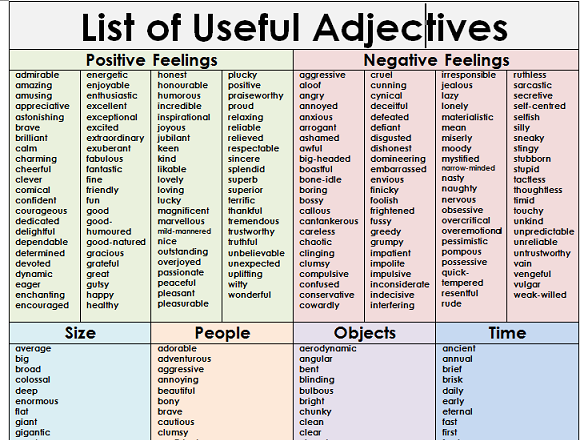
- I think that in warm autumn you can have a great time outdoors, walking around the city or playing with friends.
- Every morning Artyom doused himself with cold water to harden his body.
- The salesman raised his hand with a small shoe to show it to us.
In the task, we are given four phrases:
- early spring
- warm autumn
- cold water
- small shoe
Each of these phrases has the following composition "adjective + noun". The noun is the main word in any of these phrases. It poses a question to the adjective.
Find common features of adjectives according to the task condition
What do the adjectives of the given phrases have in common? Let's figure it out:
- All four adjectives have a singular form, since they denote a sign of one object or phenomenon.
- Putting the phrases in the initial form (early spring, warm autumn, cold water, small shoe), we determine that the adjectives are feminine.
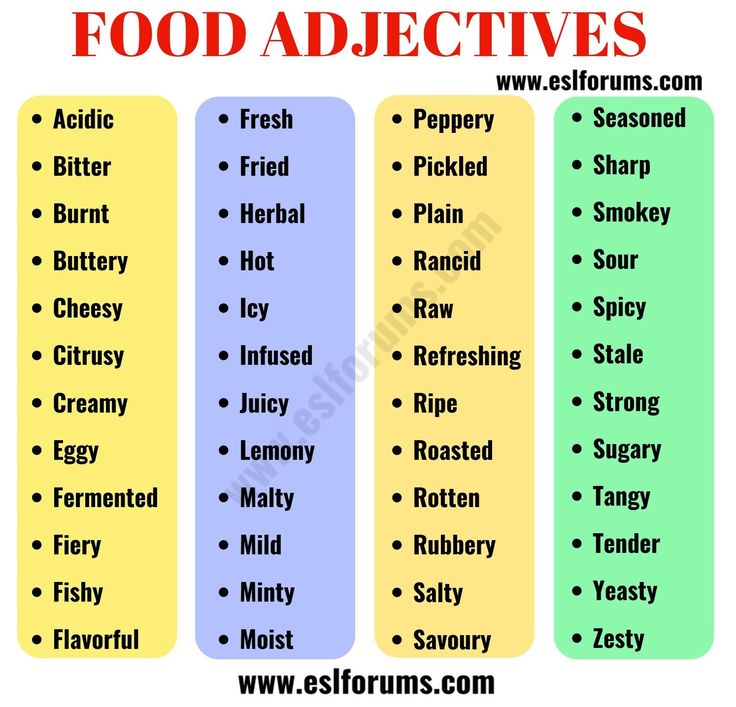
- In all these four phrases from the main word (from the noun) to the dependent (to the adjective) the same question is posed "What?" Considering the above two signs, we conclude that adjectives are in the form of instrumental case. nine0016
Decline the given phrases by cases
In order to make sure that the task is completed correctly, we decline our phrases by cases:
- Nominative case - (What? What?) early spring;
- Genitive - (What? What?) Early spring;
- Dative - (What? To what?) in early spring;
- Accusative - (What? What?) Early spring;
- Instrumental case - (What? What?) in early spring; nine0016
- Prepositional case - (About what? About what?) about early spring.
- Nominative case - warm autumn;
- Genitive case - warm autumn;
- Dative case - warm autumn;
- Accusative - warm autumn;
- Instrumental case - warm autumn;
- Prepositional case - about warm autumn.
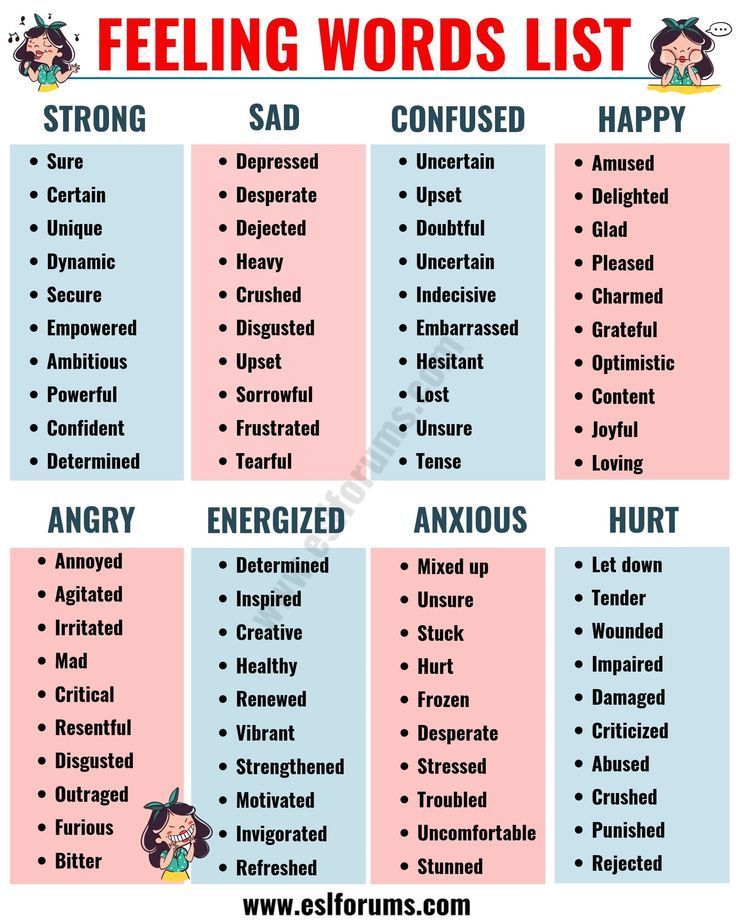
- Nominative - cold water;
- Genitive - cold water; nine0016
- Dative - cold water;
- Accusative - cold water;
- Instrumental case - cold water;
- Prepositional case - about cold water.
- Nominative - small shoe;
- Genitive - small shoe;
- Dative - small shoe;
- Accusative - small shoe;
- Instrumental - with a small shoe; nine0016
- Prepositional case - about a small shoe.
basic rules of use ‹ Ingleks
Thanks to adjectives, speech sounds brighter and more emotional, but you need to be able to choose them correctly in order to correctly express your thoughts. We have prepared a summary of rules, exceptions, and examples in this article to help you understand the difference between strong and weak adjectives.
Imagine that you have read a book that you like and you want to tell your friends or acquaintances about it.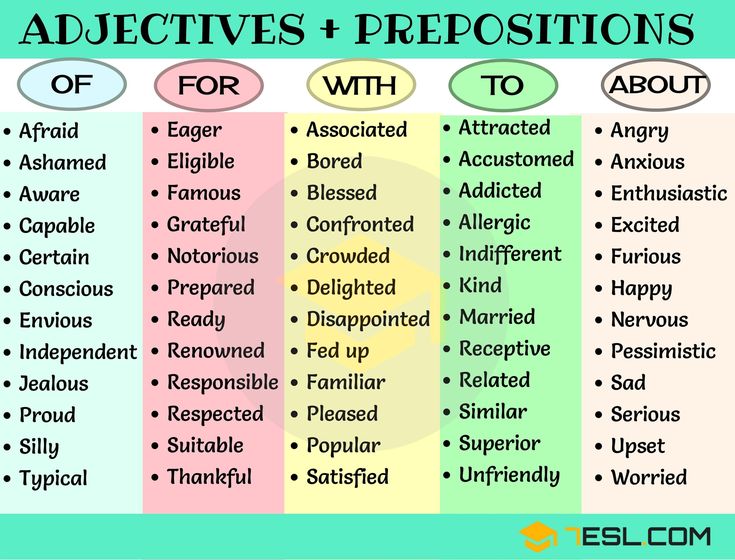 Most likely, you will say: It's a very interesting book (This is a very interesting book). But how to express admiration if you liked the book much more than just liked it? The first thing that comes to mind is to use superlatives: It's the most interesting book I've ever read (This is the most interesting book I've ever read). However, there is another way - to replace the usual English adjective with its strong form. nine0003
Most likely, you will say: It's a very interesting book (This is a very interesting book). But how to express admiration if you liked the book much more than just liked it? The first thing that comes to mind is to use superlatives: It's the most interesting book I've ever read (This is the most interesting book I've ever read). However, there is another way - to replace the usual English adjective with its strong form. nine0003
Adjectives in English can be conditionally divided into two groups:
- Weak adjectives:
- do not have a strong emotional coloring, but simply characterize an object;
- have degrees of comparison;
- can be used with words such as very (very), a bit (a little), rather (quite), pretty (quite, enough), quite (pretty), fairly (quite), etc.
- Strong adjectives:
- have a strong emotional connotation, therefore they are used to express very strong emotions or states;
- most of them do not have degrees of comparison;
- most often, words such as very, a bit, rather, pretty, quite, fairly cannot be added to them, since their meanings are already contained in the definitions of these adjectives.
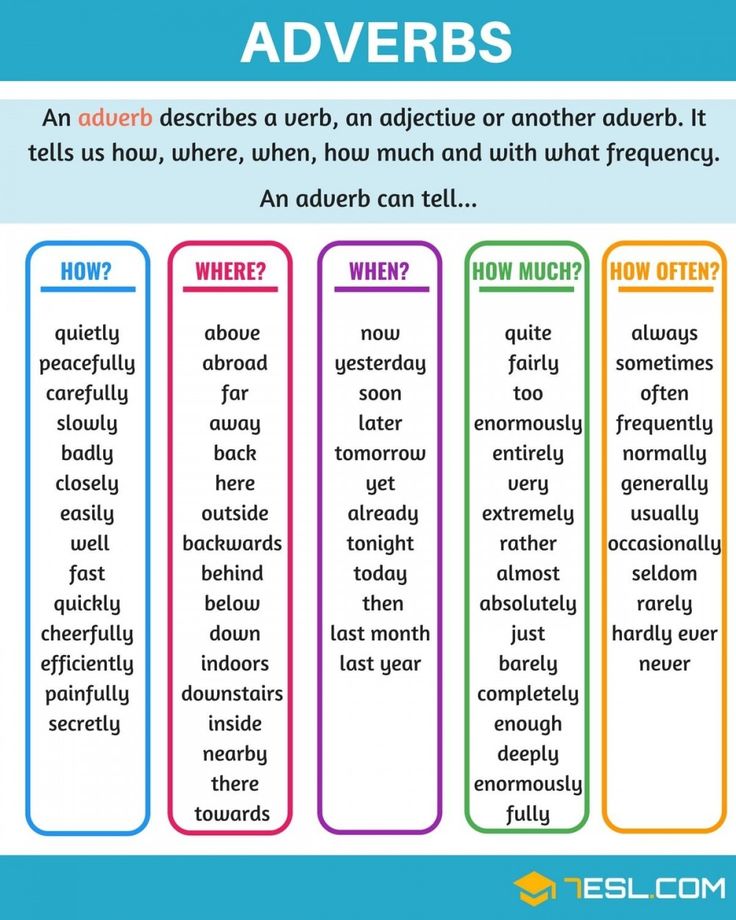 For example, you cannot use the word very with the word fantastic (amazing), but you can use words such as absolutely (absolutely), extremely (extremely), completely (absolutely), totally (absolutely, completely). nine
For example, you cannot use the word very with the word fantastic (amazing), but you can use words such as absolutely (absolutely), extremely (extremely), completely (absolutely), totally (absolutely, completely). nine freezing very bad awful, terrible, dreadful very good extraordinary very cheerful hilarious very upset
- Yes, it's tiny !
Is a very small country house ?
- Yes, tiny .- Was the film very bad ?
- Yes, it was awful .
- The movie was very bad ?
- Yes, he was terrible .- Did he look very sad ?
- Yes, he looked miserable .
- He looked very upset ?
- Yes, he looked unhappy .Adverbs that are used with strong and weak adjectives
Adverbs are used with adjectives to give them additional shades. Intensifying adverbs are also divided into strong and weak adverbs and are used according to the principle “opposites attract”, that is, strong adverbs are combined with weak adjectives, and weak adverbs with strong adjectives. The table shows examples of the correspondence of adverbs and adjectives.
Strong adverbs for weak adjectives Weak adverbs for strong adjectives — Usually Cheryl is very tired at the end of the day. Richard has been completely miserable since the car accident that happened. 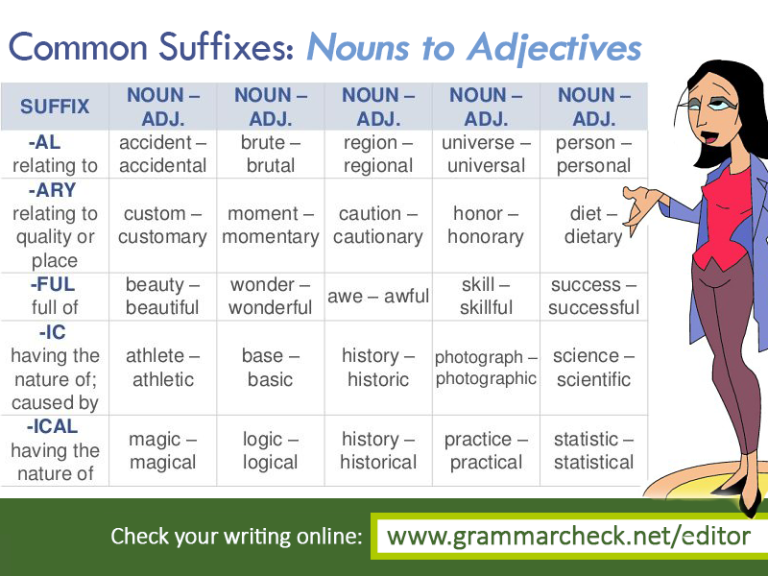 Richard has been completely unhappy since the car accident happened. nine0162
Richard has been completely unhappy since the car accident happened. nine0162 rather absolutely She is rather angry . Let's not annoy her. – She is quite angry . Let's not annoy her. All the paintings which she drew in the past were absolutely wonderful . - All the pictures she has done in the past have been just wonderful . slightly totally His behavior was slightly unusual . — His behavior was slightly unusual . He came back home totally exhausted . — He returned home completely exhausted . a bit utterly I’m a bit hungry . 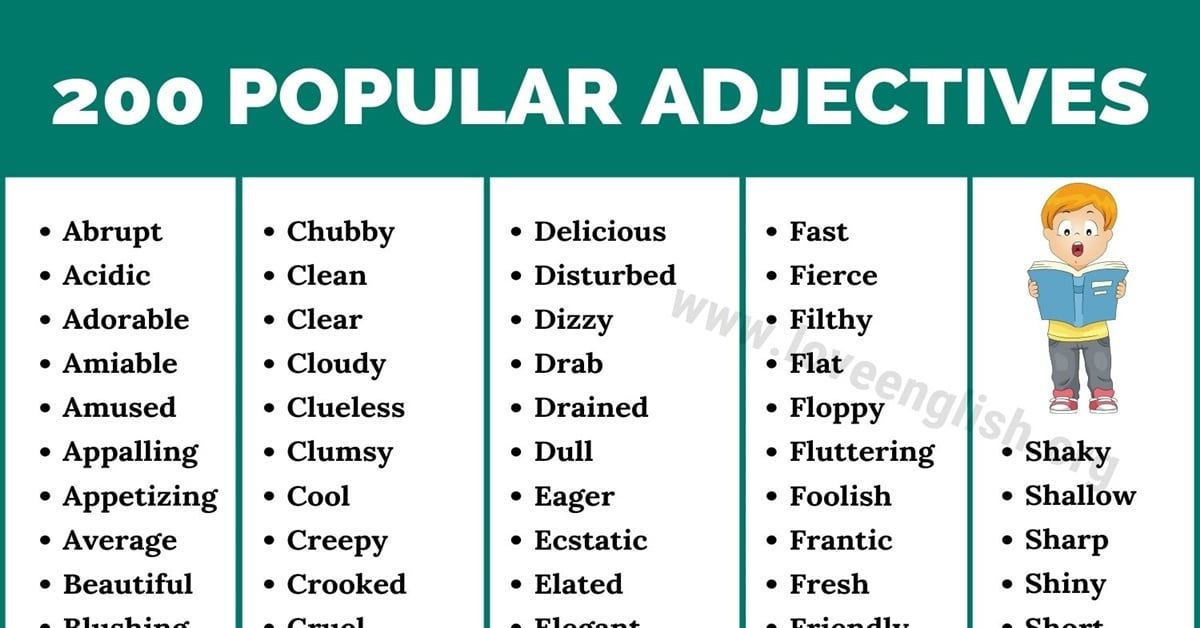 Let's eat something. — I got a little hungry . Let's eat something.
Let's eat something. — I got a little hungry . Let's eat something. Patrick's habit of picking his nose is utterly disgusting . - Patrick's habit of picking 's nose is absolutely disgusting . a little entirely My new neighbor is a little weird . — My new neighbor is a bit strange . It's not like the movie was entirely awful , but I didn't like it. - Not that the movie was absolutely terrible , but I didn't like it. nine0162 dreadfully simply When we found her, she was dreadfully scared . — When we found her, she was terribly frightened . Wasting almost $400 on that dress was simply ridiculous ! — Spending almost $400 on this dress was just ridiculous ! reasonably enough virtually His new car is reasonably expensive . 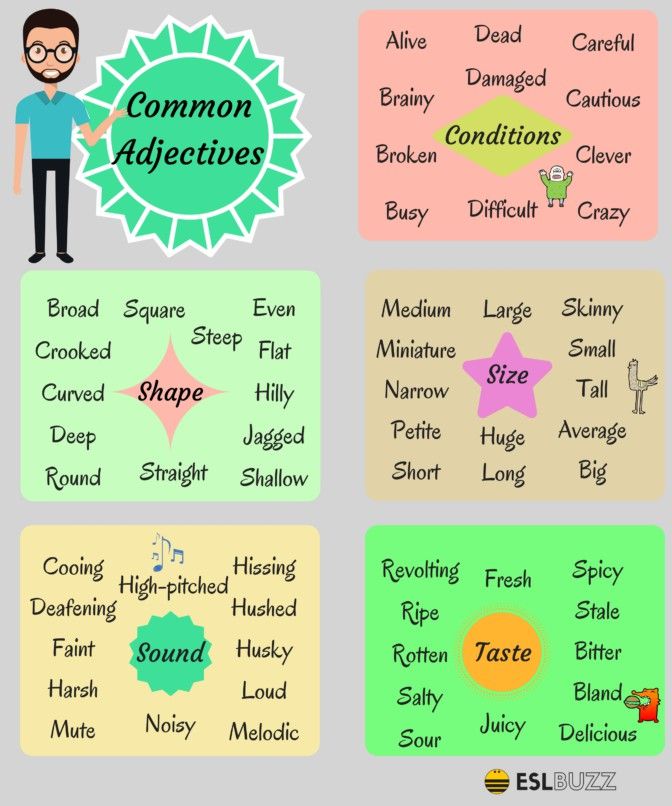 — His new car is rather expensive .
— His new car is rather expensive . When the kid was found, he was virtually starving . - When the child was found, he was practically starving . immensely - extremely, immensely not nearly (so / as) - far from, not at all This boys band was immensely popular in the 90s. — This boy band was very popular at 90 years. The book is not nearly as extraordinary as I thought. — Book is not so unusual as I thought. Exceptions to the rule
When we talk about something with irony and want to emphasize it, then weak adverbs (absolutely, totally, virtually), which are usually combined with strong adjectives, can be used with weak ones. At the same time, strong adverbs (rather, very) can be used with strong adjectives.
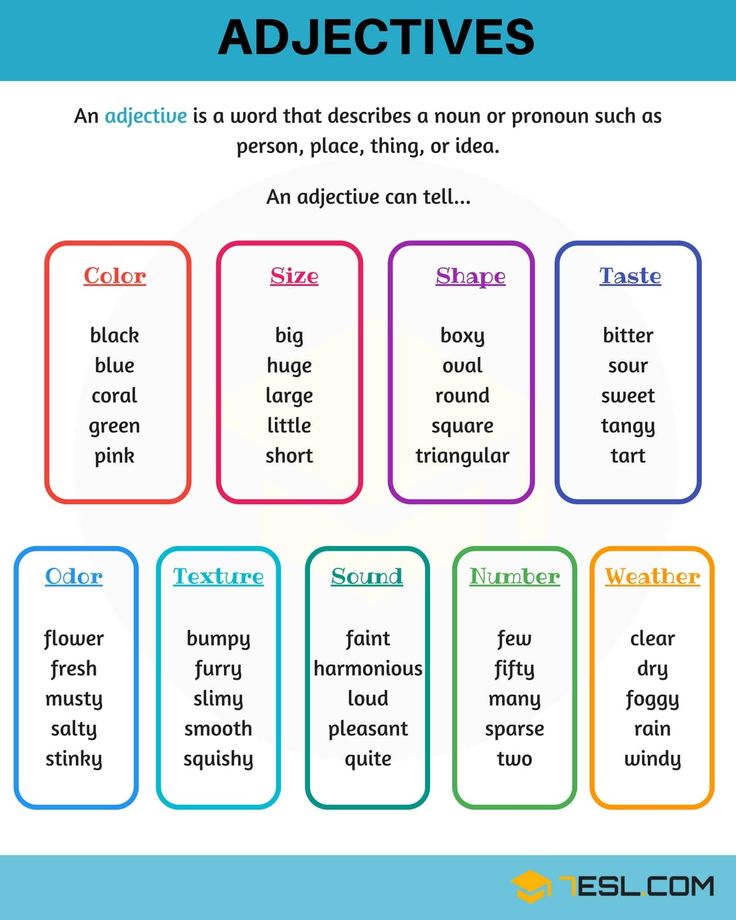 nine0003
nine0003 The food we ordered was absolutely nice . — The food we ordered was absolutely good .
The situation seemed to be rather impossible . — The situation seemed absolutely unacceptable .Adverbs such as fairly, really, pretty and extremely are considered universal because they can be used with both strong and weak adjectives.
This writer is fairly popular now. His books are all bestsellers. — This writer is now is quite popular . All of his books are bestsellers.
I have no idea why this song is such an earworm - it's fairly awful . I don't understand why this song doesn't get out of my head. She is rather disgusting .Grammar lessons with a teacher at the Skills club will help you fill in the gaps in your knowledge. Classes are held in the format of 20% theory and 80% practice. You learn a new topic and immediately put the acquired knowledge into practice.
